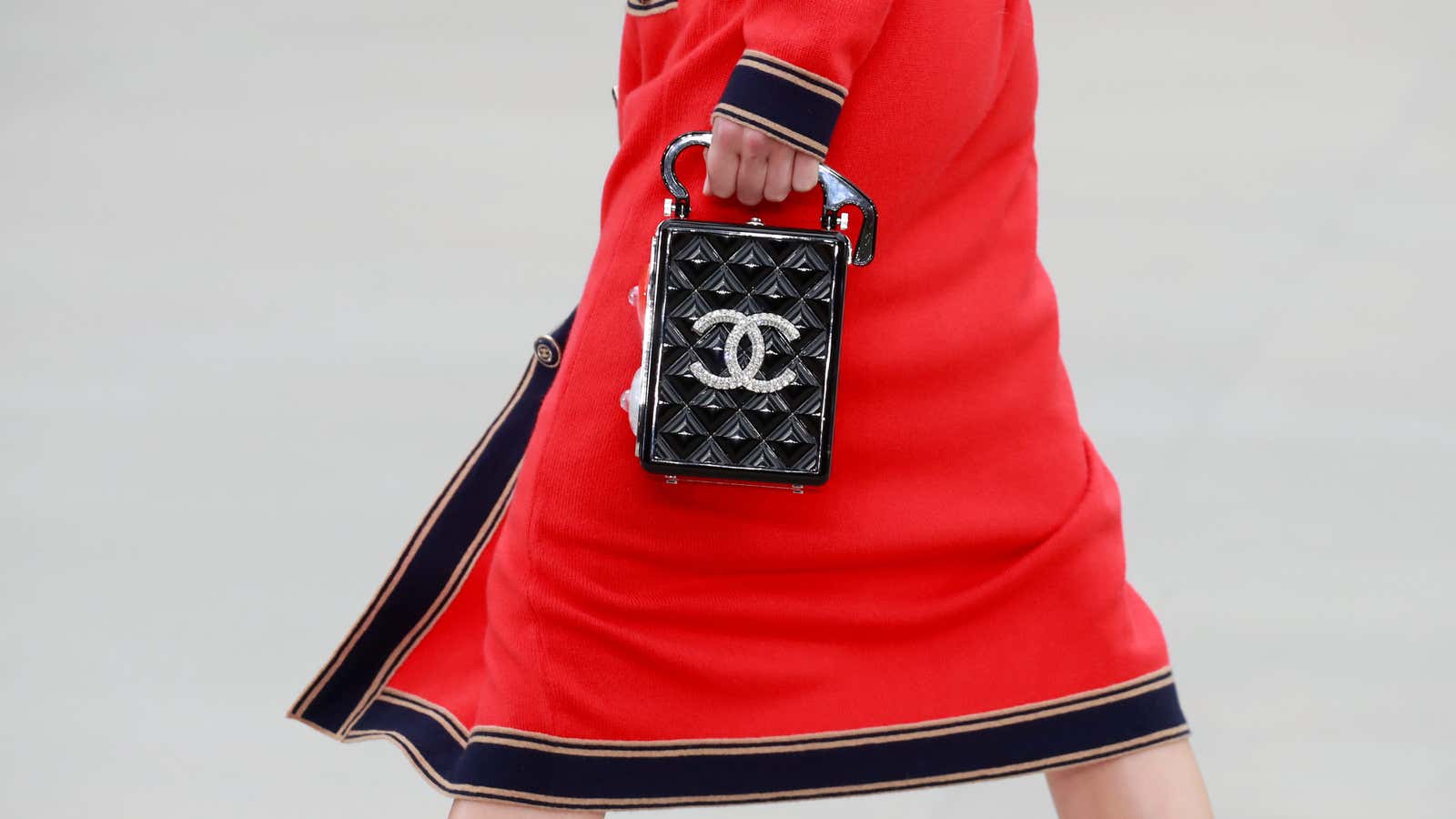Chanel is a great many things. It rivals Louis Vuitton as the largest luxury label in the world. It is one of the most storied and valuable fashion brands in existence. It is also one of a very few large luxury companies that remains privately owned, causing potential investors and buyers to drool at the thought of one day owning a piece.
But what it is absolutely not, the company swears up and down, is for sale.
Chanel reported its earnings today for the second time in its century-long history, boasting a 10.5% rise in global sales in 2018 to reach $11.1 billion. The first time it revealed its numbers was last year, explaining that, even though it was under no obligation to publicly reveal its financials as a private company, it wanted to stop others speculating about its business. It didn’t exactly work. The disclosure set off new speculation that the Wertheimer family, which bought the Chanel name from Coco Chanel herself in 1954 and became the company’s sole owners when she died in 1971, might finally, at long last, be open to selling or mulling an IPO.
As Chanel reported its earnings once again, Philippe Blondiaux, the company’s CFO, insisted Chanel is not on the market. “Chanel is not for sale, Chanel is not preparing for an IPO, I just want to reconfirm that for the hundredth time this year,” he told Business of Fashion (paywall).
“I think it will never happen, that’s the best I can say, whether it’s a sale or an IPO,” he said to WWD (paywall).
“The work we are doing and investments we are making are all geared toward maintaining the independence of Chanel for centuries to come,” he declared to the New York Times (paywall). “Would a company preparing itself for a sale invest more than $2 billion in 12 months in sustaining creativity and innovation? Or increase its head count by 14%?” Well, would it? Blondiaux offered the answer: “No.”
At the same time, as if to whet appetites, Blondiaux made clear that Chanel has a healthy balance sheet, continues to enjoy substantial growth—especially in Asia—and is seeing demand across its products, not just for longtime money makers such as its No. 5 fragrance and 2.55 bag. He noted to Business of Fashion that fashion brands are about creating dreams. And in this case, Chanel is offering a fantasy for the bankers.
“Fantasy” is a good descriptor for Chanel. Members of luxury conglomerate LVMH reportedly said (paywall) at an investor day in Paris this month that Chanel could be worth close to €100 billion ($113 billion), nearly twice what some analysts have estimated. LVMH denied having commented on Chanel’s value.
The strong results of the past year come despite a major upheaval at the company. In February, Karl Lagerfeld died. He was the house’s artistic director for more than three decades, and his death immediately raised questions about how Chanel would continue without the man who resurrected the brand and effectively built its present-day identity. Chanel quickly appointed Virginie Viard, who worked closely with Lagerfeld for many years, as his successor. It’s still early to see the results of the creative change in Chanel’s financials, but the company said it doesn’t expect any impact.
